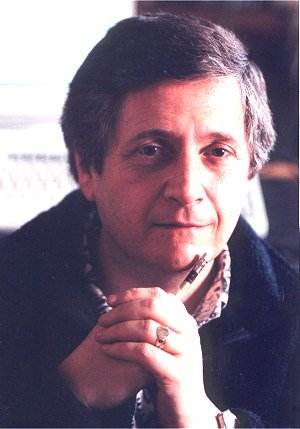Andrew DOWNES
Centenary Firedances.
Symphony Orchestra of the Birmingham Conservatoire/Jonathan Del
Mar
The Marshes of
Glynn
 John Mitchinson (tenor) Birmingham
Conservatoire Chorus and Symphony Orchestra/Damien
Cramner.
John Mitchinson (tenor) Birmingham
Conservatoire Chorus and Symphony Orchestra/Damien
Cramner.
 Hermetics Productions CD
No. OHOOl
Hermetics Productions CD
No. OHOOl
Available from Lynwood Music, Church Street, West Hagley, West Midlands DY9
0NA at £10 including post and packing

Andrew Downes's impressive Centenary Firedances is a truly
magnificent orchestral showpiece. It restores my faith in music and that
exciting colourful and hugely exciting music for orchestra is still being
written although, I hasten to add, not very often. I love the primitive feel
yet it is not akin to Stravinsky's Rite of Spring but an individual
voice. The tragedy is that if it was a soundtrack for a film people would
rave about it but it stands, indeed towers, above that as a glorious and
deeply satisfying piece, unashamedly tonal and without clichés. Believe
me, that says a lot. The discerning musician will know what I mean and will
turn with eagerness to this fine score and not be disappointed.
What I love about Andrew Downes's music is that while it has moments of
shattering excitement it is never out of control or noisy for the sake of
it as some composers are. How many composers blast and blare as an apology
for dramatic power when they simply have not got a clue. His music has climaxes
which are the natural progression of the music's logical argument.
And admire the orchestration. He does not succumb to chunks of brass band
music and go through the gamut of effects and highlighting instruments in
that ghastly way that Britten does in The Young Person's Guide to the
Orchestra in which some of the orchestration is decidedly bad. How well
Downes captures music of the medieval courts in the third dance with fife
and tabor and yet it is not plagiarism. Gerard Victory was to do likewise
in his Symphony no. 2 a work that really must be recorded. What feeling there
is in the fourth dance with a sublime working of strings and then woodwind.
And here is pageantry without the sickly and insincere pomp of some, and
particularly one composer which I dare not mention.
Jonathan Del Mar conducts with insight and tremendous verve.
The Marshes of Glynn is a cantata for tenor, chorus and orchestra
and was written to commemorate the opening of the Adrian Boult Concert Hall
in Birmingham in February 1986. It may also be the first work of Andrew Downes's
to gain real attention. The words are by the 19th century American poet Sidney
Lanier. The music has a Vaughan Williams feel about it and his Fifth Symphony
is recalled. The great characteristic of this score is its simplicity, nothing
fancy or complex, triadic chords and a predilection for major sixths. Strangely
the unaccompanied choral passages with or without the tenor soloist are the
most effective particularly between figure F and figure G in the score. The
exultant cry of Free is a stirring passage.
The writer laments urbanisation and longs for the freedom of nature,
the majestic oaks and the marshlands that go down to the sea:
Free by a world of marsh that borders a world of sea
The simple chordal passage for the chorus just after figure N is both simple
and effective. I like the juxtaposition of minor thirds and perfect
fourths. There are few climactic moments but the reference to the
Catholic man who hath mightily won God out of knowledge is
impressive as it is when the tenor sings I will fly in the greatness
of God. The double triads in the chorus from figure T onwards are very
evocative. But the restful passages are good too. Perhaps the music is somewhat
bare at times but does that not convey the landscape of the poem?
The soloist is the celebrated John Mitchinson and he is, as usual, in fine
voice.
There are one or two recording problems with this cantata. Balance is
occasionally wrong and the crunch sounds of turning the recording equipment
off at the end of movements is slightly annoying but what does matter is
that we have a recording of a work that should be taken up and, in addition,
no one who loves orchestral showpieces would want to be without the
Centenary Firedances.
Please consult my mini-biography of this composer
on this website.
David Wright

